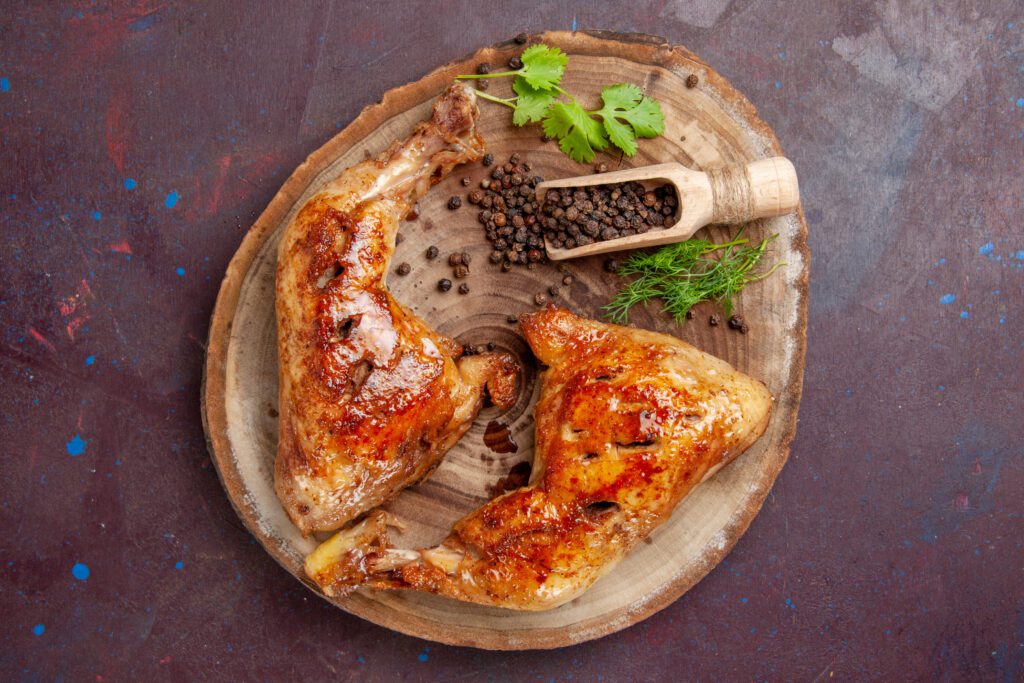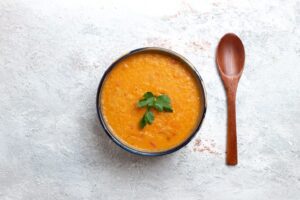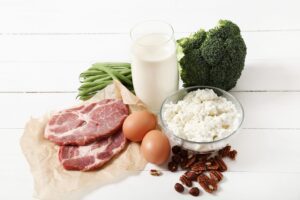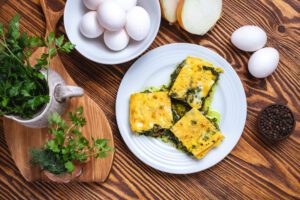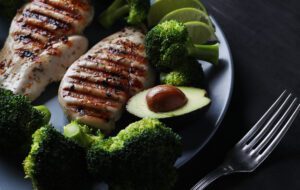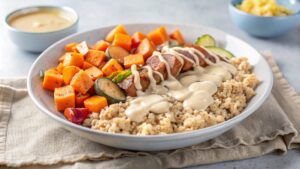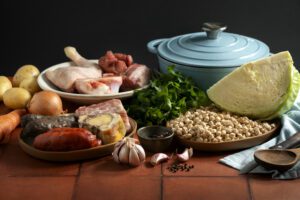The recovery phase after cancer treatment is very important. In this phase, your body slowly heals itself, but proper nutrition and meal planning is required to make this process smooth. Maintenance therapy is an integral part of this process which reduces the chances of cancer coming back.
When you are on maintenance therapy, your focus is on keeping your body strong and dealing with side effects. But many times patients are confused about what to eat, how much to eat, and how to plan their diet.
Here, we will demonstrate in detail how you can eat well during your maintenance therapy so that you don’t lose strength and immunity.
Table of Contents
Understanding Maintenance Therapy
What is Maintenance Therapy?
Maintenance therapy is a treatment strategy that follows primary cancer treatment (like chemotherapy, radiation, or surgery). Its aim is to prevent cancer from relapsing. This therapy is especially for patients whose cancer is in remission but who are still at risk of relapse.
Goals of Maintenance Therapy
- Preventing relapse: minimizing the chances of cancer coming back.
- Maintaining overall health: keeping the body stable and controlling side effects.
In which cancers is Maintenance Therapy given?
- Leukemia (ALL and CLL): This therapy is effective in blood cancers.
- Lung Cancer: It is given to patients with Non-small cell lung cancer (NSCLC).
- Breast Cancer: Hormonal therapies like Tamoxifen.
- Ovarian Cancer: Targeted therapies like PARP inhibitors are used.
Case Study: Real-Life Example
Case Study: Anna is a 48-year-old breast cancer survivor. After chemotherapy, she started maintenance therapy which included targeted drugs and a balanced diet. With regular meal planning and proper nutrition, she kept her weight and energy levels stable. Her cancer did not return even after 2 years.
This example shows how maintenance therapy and proper diet boost recovery.
Importance of Nutrition During Maintenance Therapy
Role of Nutrition in Maintenance Therapy
Proper nutrition is very important to keep your body strong during maintenance therapy. This nutrition gives you:
- Energy: To handle daily activities and side effects of therapy.
- Boosts the immune system: Helps to avoid infections.
- Promotes healing: Helps in repairing body cells and tissues.
Common Challenges During Maintenance Therapy
- Nausea and Vomiting: Loss of appetite due to side effects of chemotherapy.
- Loss of Appetite: Doesn’t feel like eating.
- Taste Changes: Food starts to taste strange.
- Fatigue: Get tired quickly and energy levels remain low.
- Weight Loss or Gain: Extreme weight changes can also be problematic.
Essential Components of Nutrition
1. Proteins: Necessary for muscle and tissue repair.
2. Carbohydrates: Important for energy.
3. Vitamins: Heal the body and support the immune system.
4. Minerals: Necessary for bones and cells.
5. Hydration: Water and electrolytes are balanced.
Step-by-Step Guide to Meal Planning for Maintenance Therapy
If you plan your meals well, it is easy to get enough nutrition in a day. This section will share with you the practical steps and take-away instructions to remain healthy during maintenance therapy.

Step 1: How to Plan Weekly Meals
Weekly meal planning lets you know what to prepare and eat each day. This approach saves time and keeps you organized.
- Plan in advance: Plan your meals every Sunday or any convenient day. Write a plan for breakfast, lunch, snacks, and dinner.
- Focus on balanced meals: Include proteins, carbs, and vegetables in every meal.
- Make a grocery list: Write a grocery list according to the meal plan so that nothing is missed.
- Prep meals: Prepare some meals or ingredients in advance and keep them in the fridge, such as chopped vegetables, boiled eggs, or marinated chicken.
Step 2: Include protein-rich foods
Protein repairs your body’s cells and tissues, which is essential during maintenance therapy.
Protein-Rich Foods Options
1. Non-Vegetarian Sources:
- Chicken: Grilled or boiled chicken breast.
- Fish: Salmon, mackerel, tuna (Omega-3 fatty acids se rich).
- Eggs: Boiled or scrambled eggs.
2. Vegetarian Sources:
- Paneer: Paneer or grilled paneer.
- Tofu: Stir-fried tofu with vegetables.
- Nuts and Seeds: Almonds, walnuts, chia seeds, flaxseeds.
Schedule of Protein Intake
Breakfast : Boiled eggs or paneer sandwich
Lunch : Grilled chicken
Snack : Handful of nuts
Dinner : Fish curry or tofu stir-fry
Step 3: Importance of Vitamins and Minerals
Vitamins and minerals help in strengthening immunity and healing during cancer recovery and maintenance therapy.
Essential Vitamins And Their Sources
1. Vitamin C:
- Sources: Oranges, guava, bell peppers, broccoli.
- Benefits: Boosts immunity and helps in the healing process.
2. Vitamin D:
- Sources: Yogurt, eggs, fatty fish, sunlight exposure.
- Benefits: Strengthens bones and muscles.
3. Vitamin B12:
- Sources: Eggs, meat, dairy products.
- Benefits: Improves energy levels.
Essential Minerals And Their Sources
1. Iron:
- Sources: Spinach, beetroot, red meat.
- Benefits: Reduces fatigue and improves oxygen supply.
2. Calcium:
- Sources: Milk, cheese, almonds.
- Benefits: Keeps bones and teeth strong.
3. Magnesium:
- Sources: Bananas, nuts, whole grains.
- Benefits: Relaxes muscles and improves sleep quality.
Step 4: Hydration Tips
Hydration is essential for every function of your body. It is important to avoid dehydration during maintenance therapy.
Hydration Tips
- Drink 8-10 glasses of water daily: Keep sips of water throughout the day.
- Herbal Teas: Ginger or peppermint tea can control nausea.
- Electrolyte Drinks: Coconut water and ORS balance electrolytes.
- Soups and Broths: These are tasty and hydrating.
Hydration Schedule
Morning: 1 glass of warm water with lemon
Mid-Morning: Herbal tea
Lunch: 1 glass water
Evening: Coconut water
Dinner: Soup or warm water
Step 5: Avoid Foods
There are certain foods to avoid during maintenance therapy that can negatively impact your health.
- Processed Foods: Chips, packaged snacks, ready-to-eat meals.
- Sugary Foods: Cakes, pastries, candies.
- Fried Foods: Deep-fried snacks
- Red Meat in Excess: Red meat with high fat and preservatives should be avoided.
- Alcohol: Weakens the immune system.
Practical Tips for Effective Meal Planning

Grocery Shopping Tips
- Make a list: Write a list according to your meal plan.
- Buy fresh produce: Prioritize fruits, vegetables, and proteins.
- Prefer whole foods: Whole grains, dal, and fresh meat.
- Avoid impulse buys: Avoid junk food and processed items.
Meal Prepping Hacks
- Batch Cooking: Cook multiple meals in a day and store them in the fridge/freezer.
- Chopped Vegetables: Chop them beforehand and keep them.
- Portion Control: Store meals in small containers.
Handle Taste Changes
- Use Spices and Herbs: Add flavor with oregano, basil, and cumin.
- Cold Foods: Some patients like cold foods like salads.
- Change the Texture: Try Smoothies, Purees, and Soups.
Emotional Support and Motivation
- Support from family and friends: Make meal times social and enjoyable.
- Positive Affirmations: Appreciate your progress.
Conclusion
When in maintenance therapy, you can maintain your body by meal planning. Using a healthy diet, fluid intake, and practical information, you can smoothen your recovery process. Don’t forget that with each tiny step, you get one step closer to your healthy future.
FAQs
What is Maintenance Therapy?
Maintenance therapy is a treatment given after primary cancer treatment to prevent cancer relapse.
What is the Best Diet for Cancer Patients?
A balanced diet is rich in high protein, vitamins, minerals, and hydration.
How to Control Nausea?
Eat in small portions, and use ginger tea, and peppermint.
What is the duration of Maintenance Therapy?
It depends on the cancer type and the patient’s condition.

